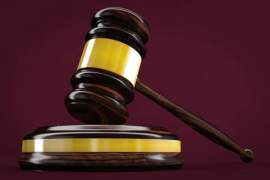
Landrum-Griffin Act

Popular In Employment
Kentucky Labor Laws Breaks Massachusetts Labor Laws Breaks Washington Labor Laws Breaks Michigan Labor Laws Breaks Alabama Labor Laws Breaks Employment Law Illinois Labor Laws Breaks Age Of A Cashier Preemployment Screening Fair Labor Standards Act Employment Guide Missouri Labor Laws Breaks
What is the Landrum Griffin Act of 1959?
The Landrum Griffin Act; commonly known as The Labor-Management Reporting and Disclosure Act, was a bill signed into law by President Dwight Eisenhower that was enacted to prevent abuse and attempted to regulate internal union affairs; which is found in United States Code 29 U.S.C. subsection 409 et seq. It provides standards for the disclosure and reporting of financial transactions and administrative processes of labor organizations and employers as well as protects union funds and assets; the administration of labor organizations; the rights of union members; and the election of officers to labor organizations.
Background
Wagner & Taft-Hartley Acts
With the passage of the Wagner Act in 1935 employees were guaranteed certain protections including: The prohibition of management to interfere, restrain or coerce employees in their rights of freedom of association, and to form, join, or assist labor organizations, to bargain collectively for wages and working conditions through unions; prohibition of management to interfere with a labor organization; prohibition of discrimination of employees involved in labor organization; prohibition f discrimination against employees that testify against a management for managements anti-union policies; and it prohibited management from refusing to agree or conform to collective bargaining.
In 1947 President Truman signed into law the Taft-Hartley Act; which curtailed the power of labor unions. The Taft-Hartley Act prohibited "unfair labor practices" on the part of unions including: jurisdictional strikes, wildcat strikes, secondary boycotts and donations by unions to federal political campaigns and "closed shops." These were contracts that required an employer to hire only labor union members. In addition the Taft-Hartley Act required union officers to sign a non-communist affidavit. Also included in the Act was a provision that permitted the federal government to "break-up" strikes by obtaining an injunction. This provision of the act was used many times to cease strikes in the steel and railroad industries that would have had a detrimental impact on the national economy.
Landrum-Griffin Act of 1957
The Landrum Griffin Act of 1957 resulted from a highly publicized investigation of union corruption and racketeering chaired led Senator John L. McLellan of Arkansas. The investigation was promulgated by a number of reports involving both the Teamster Union and the AFL-CIO regarding corruption and organized crime.
The investigation uncovered information that officers in the Teamsters Union and other groups had taken union funds for private use and that there was no doubt that the unions were linked to organized crime. The investigation eventually led to the removal of the Teamsters from the AFL-CIO; which was, at that time the largest labor organization in the United States
In addition, at the period of the Landrum Griffin Acts enactment communism was a looming threat in American history and the advent of McArthyism brought fears of communist intrusion into the public affairs of the United States.
Provisions of the Landrum Griffin Act
Union Bill of Rights
Title I of the Landrum Griffin Act comprises the Union Bill of Rights. The provisions of this title provide essential and basic rights for every employee who is a member of a labor organization. They are as follows:
1. EQUAL RIGHTS.-- Member of labor organizations have equal rights and privileges within such organization to nominate candidates, to vote in elections or referendums of the labor organization, to attend membership meetings and to participate in the deliberations and voting upon the business of such meetings, subject to reasonable rules and regulations in such organization's constitution and bylaws.
2. FREEDOM OF SPEECH AND ASSEMBLY.-- Members of labor organizations have the right to meet and assemble freely with other members subject to the organization's established and reasonable rules pertaining to the conduct of meetings: Provided that nothing herein shall be construed to impair the right of a labor organization to adopt and enforce reasonable rules as to the responsibility of every member toward the organization as an institution and to his refraining from conduct that would interfere with its performance of its legal or contractual obligations.
3. DUES, INITIATION FEES, AND ASSESSMENTS.-- Except in the case of a federation of national or international labor organizations, the rates of dues and initiation fees payable by members of any labor organization in effect on the date of enactment of this Act shall not be increased, and no general or special assessment shall be levied upon such members.
4. PROTECTION OF THE RIGHT TO SUE.-- No labor organization shall limit the right of any member to institute to sue in court, or in a proceeding before any administrative agency or the right of any member of a labor organization to appear as a witness in any judicial, administrative, or legislative proceeding, or to petition any legislature or to communicate with any legislator and that no interested employer or employer association shall directly or indirectly finance, encourage, or participate in, except as a party, any such action, proceeding, appearance, or petition.
5. SAFEGUARDS AGAINST IMPROPER DISCIPLINARY ACTION.-- No member of any labor organization may be fined, suspended, expelled, or otherwise disciplined except for nonpayment of dues by such organization or by any unless they have been given proper hearings and administrative avenues.
Oversight
One of the main provisions of the Landrum Griffin Act is the enactment of several regulations requiring oversight of policy, administration and financial activities associated with labor organizations. Regulations include the filing of documents with the federal government pertaining to the formalities of the labor organization including salaries of the officers and the membership dues. The Landrum Griffin Act also requires that the documents pertaining to a labor organization be made public and that any member of the labor organization has a right to view and keep a copy of any collective bargaining agreement associated with that labor organization.
Criminal Penalties
The Landrum Griffin Act also provides criminal penalties for violations of the Act. Such provisions include:
1. Any person who willfully violates this title shall be fined not more than $10,000 or imprisoned for not more than one year, or both.
2. Any person who makes a false statement or representation of a material fact, knowing it to be false, or who knowingly fails to disclose a material fact, in any document, report, or other information required under the provisions of this title shall be fined not more than $10,000 or imprisoned for not more than one year, or both.
3. Any person who willfully makes a false entry in or willfully conceals, withholds, or destroys any books, records, reports, or statements required to be kept by any provision of this title shall be fined not more than $10,000 or imprisoned for not more than one year, or both.
4. Each individual required to sign reports under sections 201 and 203 shall be personally responsible for the filing of such reports and for any statement contained therein which he knows to be false.
Other provisions
The Landrum Griffin Act also touches upon many other aspects of labor organizations. Included in the titles of the act are provisions concerning elections of labor organization officers; the extent of fiduciary obligations of those officers; bonding; the ability of the labor organization to make loans; and the administrative requirements and recordkeeping associated with the labor organization.



















